MoorishVibrant recipes from the Mediterranean
Fresh, fragrant, fruity, spicy, smoky, sweet, sour, and sharp. Discover how to cook these vibrant southern Mediterranean flavours at home with 100 wonderful recipes from Ben Tish.
The bold spices and sun-soaked exotic tastes of North Africa and the Arabic world collided with the characterful food of the Mediterranean when the Moors invaded. It was this glorious fusion of flavours that first seduced British chef, writer and restaurateur, Ben Tish, and sent his cooking on a new course.
Moorish is a collection of authentic recipes inspired by Ben’s passion for the region, along with a few of his own twists and interpretations. He has divided the book into chapters based around the way he likes to cook at home – from quick and refreshing light bites and his notorious barbecue food to lazy brunches and slow-cooked dishes that fill the house with evocative scents of the Mediterranean.
Ben’s love of food started at an early age in the seaside town of Skegness. Very busy parents meant that Ben spent a lot of time with his Jewish grandmother, a feeder if ever there was one and a brilliant home cook.
At 19-years-old he moved to London to work as a 3rd commis chef at The Ritz, London. A baptism of fire ensued over the next two years followed by a move to the ultra cool restaurant Coast, where Ben worked with Jason Atherton and Stephen Terry. After working at a number of Michelin-starred restaurants Ben found himself at a high-end Italian restaurant in London’s Mayfair which proved to be the turning point for his style. The kitchen’s focus was on seasonality, with impeccable produce treated with the utmost respect. From there Ben then spent time at the remote Crinan Hotel in the West Highlands of Scotland where the supplier relationship was paramount and the only way to work was to be completely in tune with the seasons. Returning to London, Ben joined the Salt Yard group, which focused on the cuisines of Spain and Italy, serving tapas-style dishes with a modern spin. As Chef Director he went onto open several award-winning restaurants with the group.
In 2018 Ben joined the Stafford London as their Culinary Director, overseeing all the food operations, and this year Ben will be leading on new restaurant projects with the Stafford, focusing on his love of Mediterranean cooking.
This is Ben’s third cookbook, having previously written Salt Yard Food and Wine (2012) and Grill, Smoke, BBQ (2016). He regularly appears on TV including shows such as Saturday Kitchen, Masterchef and Sunday Brunch.
Ben lives in East London with his wife Nykeeta and his French bulldog Piglet.
BEN TISH
No pun intended but, this is more than a cookbook full of Mediterranean recipes. Chef and author Ben Tish. looks into a region and history that he has found to be interesting and culinarily inspirational. Thoroughly researched the book could also stand alone as an informative guide to the region. The recipes are both traditional as well as innovative. Ben recently took time away from his self proclaimed hectic schedule to talk with us about his new book.
BookAboutFoo.com (BAF): Terrific book.
Ben Tish: Thank you.
BAF: This is your third book, I believe?
Ben Tish: Yeah, that’s right. Yes.
BAF: And so this is… you’re focusing on a region that you’re particularly fond of, I believe? The Mediterranean?
Ben Tish: Yeah, 100%. Currently from… I guess from my Salt Yard days, where I was there for 12, 13 years. We focused on Mediterranean. I suppose with an inner focus on Spain and Italy. So, that was a starting point, those two countries, and then you know, filling out the dots between those two countries and around the Mediterranean, so yeah that’s where all that really began properly.
And then, as time went on, I was visiting Spain and Italy a lot. You know, over the years I’ve gotten to cook food, read books, all that kind of things, and then I think naturally, just organically, naturally, I began to enjoy and become more interested in the style of those two countries and others in the Mediterranean where there’s you know….there’s the North African influence is felt on many levels, not just food but the culture, the architecture,, so on and so forth so that’s what I would then you know, that is the focus of the book, is the Moorish influence on those countries.
BAF: It sounds like your love for the region has came about, as you said, very organically, it just sort of seemed to be there.
Ben Tish:: Yes. Yeah, well like I said, I love Spain and Italy. Particularly Italy. I’ve kind of had years where I’ve preferred Spain and those kinds of things but I think just going between the two cultures kind of makes links together, you know, physically. And then how it’s still there. It’s kind of morphed and changed, but it’s intertwined and obviously it’s not as when the Moors would have occupied it, but they’ve left their mark and it’s worked its way into the veins of those areas, and I just find it really interesting and fascinating how it’s intertwined. I think it’s a really fascinating thing.
But you know, I think my interest in the Moores, as well as Spain and Italy is kind of well documented and if you said Morish and Moorish influence, people will expect you to say, “Oh yeah Spain and [inaudible 00:04:14].” But you know, I think that Italy and Sicily, especially Italy, I think for me is more interesting. So, that’s kind of… I just recently opened a restaurant called Norma, which kind of focuses on that cuisine, in Sicily.
BAF: Actually, on a side note I was actually in Italy, well I was in Venice for the first time this summer, and looking around, looking up, I started to notice that there’s a lot of Islamic architecture and patterns in some of the buildings that you don’t notice at first.
Ben Tish: Venice is very much on the side. However, it was very much a hub, the hub of the spice route, right?
So, I guess that that’s almost a separate thing, but yes Venice. There is a big Moorish influence in there, and in fact, one of the respites in the book of Moorish is the Venetian recipe, by that they’ve made a point that, yes while it’s not actually in the region where they were occupied, but there is a big Moorish influence out there because of the spice trade. I have to include that there.
BAF: I guess my next question was how did it… I think you may have answered it already, how did this book come about, or how did you start?
Ben Tish: How did I start? Well, I think at the end of my time at the Salt Yard Group, I wanted to open a restaurant, really. Focusing on the Moorish influence. So it was the restaurant idea that came first, and whether that was going to be it for the Salt Yard Group or my own, whatever. So I was doing a sort of plan like that, and then you know, did some research and though is a good book in this as well. So, what happened was, when I left Salt Yard Group, I had to take nearly two years off or a year and a half, something like that because I just wanted to have a break. But, I met somebody and I got this book together and the restaurant concept at the same time that I was writing the book, it kind of went hand in hand really, although the restaurant only opened a few weeks ago, the book is still in another year, year and half. You know, books take a long time to get out there.
But, yeah I kind of did the two things at the same time. Planning the restaurant and the book, and I had some time to travel. I had time to go and visit those countries and spend a bit of time at selecting new recipes, but also do better in my own recipes.
BAF: There’s a lot of history there, and a long time line. Where do you start a project like this? It just seems so…
Ben Tish: In terms of the history?
BAF: History and geography.
Ben Tish: Yeah, I mean it is that. It’s a big subject, you’re dead right. It’s a big, big… it’s a broad subject. So I couldn’t begin to cover it all, if you like, within a cookbook. But I bought some history books on it to establish dates and things like that, so I just did a bit of research.
I went to the British library and had a look at this, that, and the other, so I thought with the book what I would focus on, really, is Spain and Italy. Now, don’t get me wrong the Moors invaded over the middle ages, they invaded lots of countries, you know Portugal, there’s a touch of Portugal in the book. All the sub-Mediterranean area that were invaded and to try and cover that would have diluted it a bit. And my knowledge of Spain and Italy was there anyway, after I had worked there for 10 years. I thought like, that was probably the most well-known Moor-influenced area so that’s what I did. And that’s where the Moorish occupation started.
The invasion actually started in Portugal, I can’t remember the exact date but it’s somewhere in that book, but it was the middle ages and then they swiftly moved into Iberian Peninsula, into Portugal and then into Southern Spain, and then from there they moved to Southern Italy and Sicily. So that’s what I focused on, I guess it’s about a six to seven hundred year period, of occupation before they were finally, either they left or defeated.
So, that’s what their occupation was, but what I focused on in the book isn’t where they were then, the emphasis on then, I focused on the influences that are left there now, proved that Moorish occupation. You know, they give you an example of a dish, there’s one dish in the book called Moors and Christians, which is… You know, that dish, that wasn’t created during the Moorish occupation, but it was because of it. It’s not politically correct now, not particularly, but the Moors were represented by the black beans, and the Christians by the white rice.
And to think about it now, originally they wouldn’t have contained pork fat as a fat obviously, because you know, the Arabs and the Moors would not have allowed obviously any pork fat, but then there’s a lot of great recipes that have been created with whatever fattening of whatever that is, and then as the Moors were pushed out, the recipes kind of sank into what’s good in Spain, which is pork fat. So you see, that’s the kind of thing that has always fascinated me, and that’s kind of where I start, really. Is when the Moors left, I suppose.
BAF: It does. It’s been talked about hundreds of times, countless times, but it’s interesting how that story, recipes like that really tell history, particularly well.
Ben Tish: It’s really fascinating, yeah.
And then, there’s ones that I just created that I think could fit the bill. How things would have gone, there’s still a bit of the Arabic influence, and that’s what I created as well. And I think that was probably the most enjoyable part of it.
BAF: I could see that. Just taking your knowledge and creating something new out of that, that’s great.
It sounds like your understanding of the whole area and the history is an ongoing project, it’s just something you’re fascinated by.
Ben Tish: Yeah, 100%. And I think there’s tons more to explore…I think that’s where I need more to look at. Hopefully my next book is going to get locked down, it will focus on, specifically on Sicily.
BAF: On Sicily?
Ben Tish: Yeah, specifically on Sicily.
So I’ve got to visit the mainland of Sicily, and also it’s islands. There’s a little bridge of islands there in Sicily that touch the Aeolian Islands .
But, it’s just almost a different world altogether. You know, it’s got a North African kind of feel there, and couscous is a staple diet on the West coast. A lot of people don’t expect to see couscous as a staple in Sicily, but it is. You know, it’s just so close to Tunisia and all that area.
BAF: Sicily is certainly a world apart because I don’t know a lot of Sicilians that call themselves Italian. You know, they’re Sicilian but they travel on Italian passports.
Ben Tish: Yeah exactly like that.
BAF: Maybe you can tell me a little about Norma?
Ben Tish: Yes, so Norma opened about six weeks ago. It’s a project that I have been working on for a while, as I mentioned before. But what happened was, with that year and a half off I hooked up with the Stafford hotel, which is a beautiful old hotel in St James’ in London, as their chef director actually, to oversee the food there and then with the owners and the GM of that hotel, founded the Salt Yard Group. Which basically, I’ve created this project, which I was going to do anyway, we’d done it together and created a beautiful little restaurant on Charlotte street in Fitzrovia.
At Norma we focus on Sicily and the Moorish influence. You know, Norma being from Pasta El Norma, which is a specific pasta dish from Sicily, which contains tomatoes, fried aubergine, basil, and ricotta salata, which is like a cured type of ricotta, very soft. And that’s… so yeah, we just decided to call it that. It’s been going well since the opening. So yeah very, very hectic is the word. Hectic.
BAF: The photographs are wonderful. Can you tell me a little about that and who you worked with?
Ben Tish: So it’s a chap called Kris Kirkham and I’ve done lots of stuff with him, magazines and so on, but also he did my second book, Grill, Smoke, Barbecue. And he also has done some of the food photography for Norma. So if you go to the Norma website,(Normalondon.com), you can see the food photography on there is all Kris Kirkham. We’ve known each other for years, he’s fantastic. He used to be a chef. I like that because he doesn’t mess around with time, I think you know, when you’re doing those long shoots and so on, and there’s lot of… it can be quite a laborious process but he generally whips through it and has an understanding. I guess because he’s been a chef that’s another thing is he’s got a great eye as well.
It fits the food that I like to cook, so. That probably sounds a bit of a cliché but you know, it just, I don’t know I just get a good vibe with him so.
BAF: There’s some people you just work better with.
Ben Tish: Exactly, yeah.
BAF: And if he’s a chef, then he’s used to plating and like you said, has the visual.
Ben Tish: Yeah, yeah. Exactly that, yeah.
BAF: I should ask quickly, so this is your third book. So, are these getting easier to write?
Ben Tish:I mean, I have to say I wouldn’t say it was easy to write. I mean, I had plenty of time to, I was off, I did a lot of it when I had that period where I was not working so I did have a lot, but it was, as you pointed out, it’s a big topic, yeah? And there’s a lot of facts. So it’s not your regular cookbook, I think. There’s quite a lot of factual stuff in there and so it took quite a lot of research, which is good, but I don’t think if I had to do that now, as I am now, with the restaurant and those sort of things, I don’t think I would be getting much sleep.
BAF: No.
Ben Tish: I guess it really just, I need to, I don’t know, put that time into it. I enjoy writing, I enjoy the whole cookbook process but that was quite a challenging one, I have to say. But just to get you here, I think the recipe process does. I think that bit is good. I’ve got a good team around me that can help me, with the recipes and getting all that stuff so all that’s much easier now.
So I’d say yes it does get a bit easier, yes.
~~~~~
© Booksaboutfood.com 2019
“The recipes in Moorish are not only delicious but inventive and beautiful to look at.” – Jason Atherton
“Ben Tish shines a brilliant light on a wonderfully seductive (and often overlooked) facet of Mediterranean food culture: through his own personal lens he brings together history, spice and delectable recipes in an absolutely beautiful cookbook. I long to eat everything!” – Skye McAlpine
“Every section of the book is filled with concoctions that pack a punch.” – The Caterer
ntroduction
Breakfast, Brunch & Bread
Fresh
Grilling and Smoking
Slow Cooked
Sweet and Sour
Fruits
Sweet Baking
Drinks
Sauces and Marinades
About the author
Index


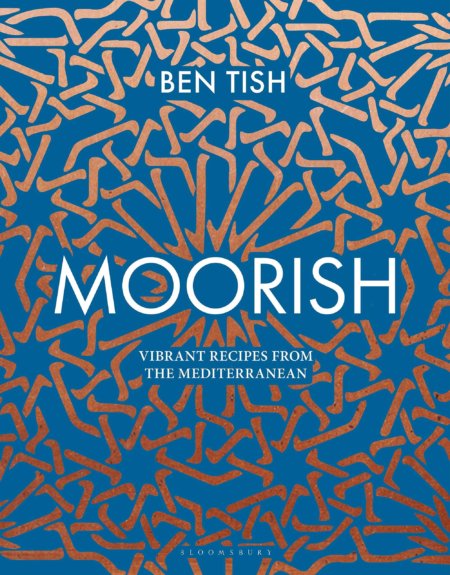


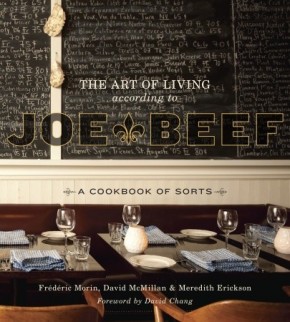

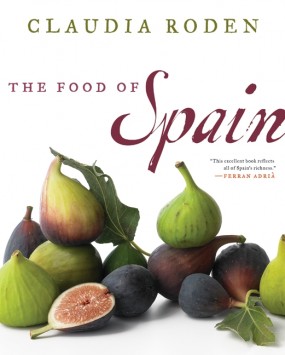
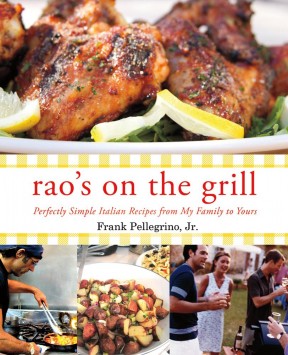
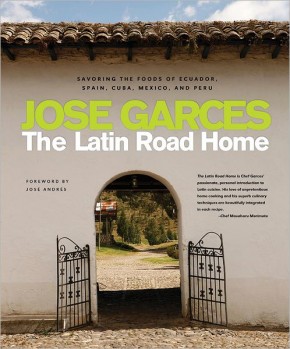
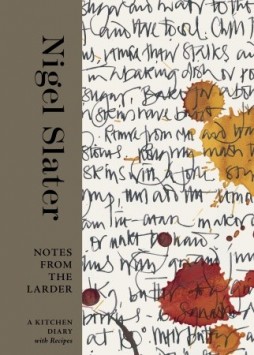
Leave a Reply